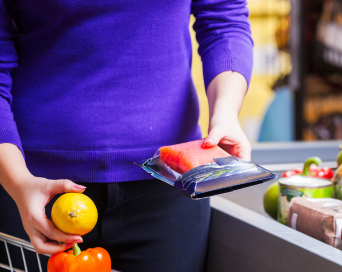SNAP EBT Fraud

The U.S. Department of Agriculture (USDA) Supplemental Nutrition Assistance Program (SNAP) provides eligible participants with an Electronic Benefits Transfer (EBT) card that works like a debit card to purchase groceries at authorized retailers, including supermarkets, grocery stores, and farmers' markets. SNAP EBT cards may have been stolen, the card numbers may have been used, or the card may have been skimmed or cloned.
Perpetrators can also exploit system vulnerabilities to commit fraudulent activities, such as selling or trading benefits, misrepresenting eligibility, or using fraudulent information to obtain benefits. The loss of funds intended to support low-income families can significantly impact their food security and financial well-being, and deprive families of the assistance they need.
Signs of this Scam
- Unauthorized Transactions: Suspicious transactions involving the buying or selling of SNAP benefits, often at a discounted rate.
- Identity Misrepresentation: Cases where individuals misrepresent their identity or provide false information to qualify for SNAP benefits.
- Unreported Income: Failure to report accurate income information to qualify for higher benefit amounts, constituting fraudulent behavior.
- Trafficking of Benefits: The illegal exchange or sale of SNAP benefits for cash or ineligible items.
- Multiple Applications: Individuals submitting multiple applications using different identities to receive duplicate benefits.
Prevention Tips
To prevent future theft of your benefits, USDA encourages SNAP participants to take the following actions:
- Keep your PIN secret. Do not share your PIN with anyone outside your household. Cover the keypad when you enter your PIN on a machine.
- Check your EBT account regularly for unauthorized charges. If you notice any, change your PIN immediately to stop the thief from making new purchases.
- Check card reading machines to ensure nothing suspicious is over-layed or attached to the card swiper or keypad. The overlays can be difficult to detect but are often bigger than the original machine and may hide parts of the machine.
- Report retailer non-compliance: Retailers participating in the SNAP program are required to follow SNAP rules; suspicious activities should be reported to the Maryland Department of Human Services at 800-332-6347 or the USDA Office of Inspector General at (800) 424-9121.
Recovering from the scam
- Report fraudulent activity to the Maryland Department of Human Services at 800-332-6347. If you believe an organized gang has victimized you, contact the USDA Office of Inspector General at (800) 424-9121 or https://usdaoig.oversight.gov/hotline.
- Get reimbursed for stolen benefits: Please complete the EBT Fraud Attestation Claim Form at https://mymdthink.maryland.gov/home/#/report-fraud.
- Cooperate with Investigations: Victims should fully cooperate with any investigations conducted by SNAP authorities by providing necessary documentation and information. Affected SNAP recipients should collect and provide as much detail as possible regarding the fraudulent activity to aid investigations.
References:
- Levi, Ran. (n.d.). SNAP Fraud: Getting Rich by Stealing from the Poor. Retrieved from podcasts.apple.com/us/podcast/snap-fraud-getting-rich-by-stealing-from-the-poor/id1252417787?i=1000668174404.
- Maryland Department of Human Services. (2022). Report Public Assistance Fraud. Retrieved from https://mydhrbenefits.dhr.state.md.us/dashboardClient/#/.
- U.S. Department of Agriculture (USDA). (2022). Supplemental Nutrition Assistance Program (SNAP) Fraud. Retrieved from https://www.fns.usda.gov/snap/fraud.

